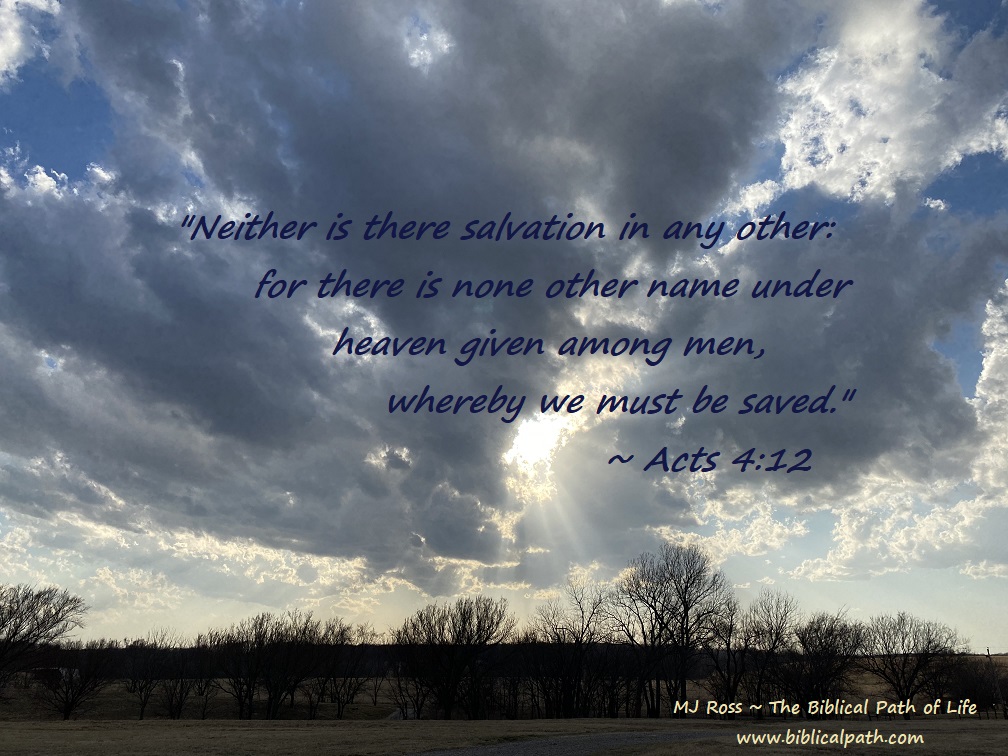
“That the trial of your faith, being much more precious than of gold that perisheth, though it be tried with fire, might be found unto praise and honour and glory at the appearing of Jesus Christ:”
1 Peter 1:7
There are choices to be made everyday. Some choices are minor with few consequences. Others have major ones. However, many people do not seriously consider the most important choice that will be made: one’s destiny after death. There are only two choices, heaven or hell. The way is clearly explained in the Bible, yet most do not take the Words to heart. Read what Jesus said: “28.… for the hour is coming, in the which all that are in the graves shall hear his voice, 29. And shall come forth; they that have done good, unto the resurrection of life; and they that have done evil, unto the resurrection of damnation” (John 5:28-29). Jesus taught them the only good work that one could do to inherit eternal life. “28. Then said they unto him, What shall we do, that we might work the works of God? 29. Jesus answered and said unto them,This is the work of God, that ye believe on him whom he hath sent” (John 6:28-29). Each person is given the opportunity to make that choice. To reject or believe in Christ.
After one accepts Christ, the next important decision is to choose whether or not one will live a faithful Christ-like life. There are many examples of people in the Bible who have made a definitive decision to walk with Jesus, daily. One great example is Peter.
While Jesus walked on this earth, Peter (along with the other disciples) readily walked with Jesus. When Jesus was arrested, Peter was the one who wielded the sword, cutting off the ear of the servant of the high priest (see Mark 14:47 and John 18:10). However, just a few verses later we read as Peter denies even knowing Jesus. “But he began to curse and to swear, saying, I know not this man of whom ye speak” (Mark 14:71). Peter had a decision to make. When he was questioned as to whether or not he knew Jesus, Peter denied Him. He was challenged about his faith in Jesus. We can read that initially, Peter failed miserably. We should be grateful that this was not a lasting failure.
When Jesus rose from the dead, the women were specifically instructed to go tell Peter. “But go your way, tell his disciples and Peter that he goeth before you into Galilee: there shall ye see him, as he said unto you” (Mark 16:7). Peter met Jesus in Galilee. Jesus spoke to Peter, and He gave Peter a chance to make a better choice. “So when they had dined, Jesus saith to Simon Peter, Simon, son of Jonas, lovest thou me more than these? He saith unto him, Yea, Lord; thou knowest that I love thee. He saith unto him,Feed my lambs” (John 21:15). Three times Jesus asked Peter. Three times Peter declared that he loved Jesus. Jesus had a job for Peter, if he would only follow Jesus. Peter had a decision to make – was he finished following Jesus with all of the turmoil surrounding Him and His death? Or did Peter want to fully commit his remaining life to follow Jesus, obeying His commands? Peter not only declared he loved Jesus, but as we begin the book of Acts, we find Peter became quite the leader and preacher of the Gospel Message (see Acts 1:15-26; 2:14-40). After that first amazing sermon, “Then they that gladly received his word were baptized: and the same day there were added unto them about three thousand souls” (Acts 2:41).
Peter had come to a crossroad in his life. Initially, he denied Jesus. However, when given a second chance Peter fully committed to following Jesus. “That the trial of your faith, being much more precious than of gold that perisheth, though it be tried with fire, might be found unto praise and honour and glory at the appearing of Jesus Christ” (1 Peter 1:7). Peter had faced a great trial of his faith in Jesus. He chose to make his faith in Christ his faith. He understood how precious that faith in Jesus truly was, and Peter endured. At that crossroad, when Peter chose to continually walk with Jesus, he chose to make it his faith regardless of what others did. He remained faithful throughout the rest of his life. Peter was an apostle of Jesus, yet he was a servant as well. He recognized that he had a precious faith only through the righteousness of God and Jesus Christ (see 2 Peter 1:1).
In the book of 1 Peter, Peter wrote about the importance of being obedient to Jesus, not living as he had once lived when he was ignorant of the things of God. Instead, Peter recognized the value of denying himself and choosing instead to become holy in his life. He believed it was important for him to live each and every day in the fear of the Lord (see I Peter 1:14-17). Fear means “a good connotation as in a godly fear; reverence.” Peter encouraged other Believers to do the same.
Do you have the precious faith that comes only through the righteousness of Jesus Christ?
Have you come to the crossroad of life, choosing to deny yourself and instead to follow Jesus?








